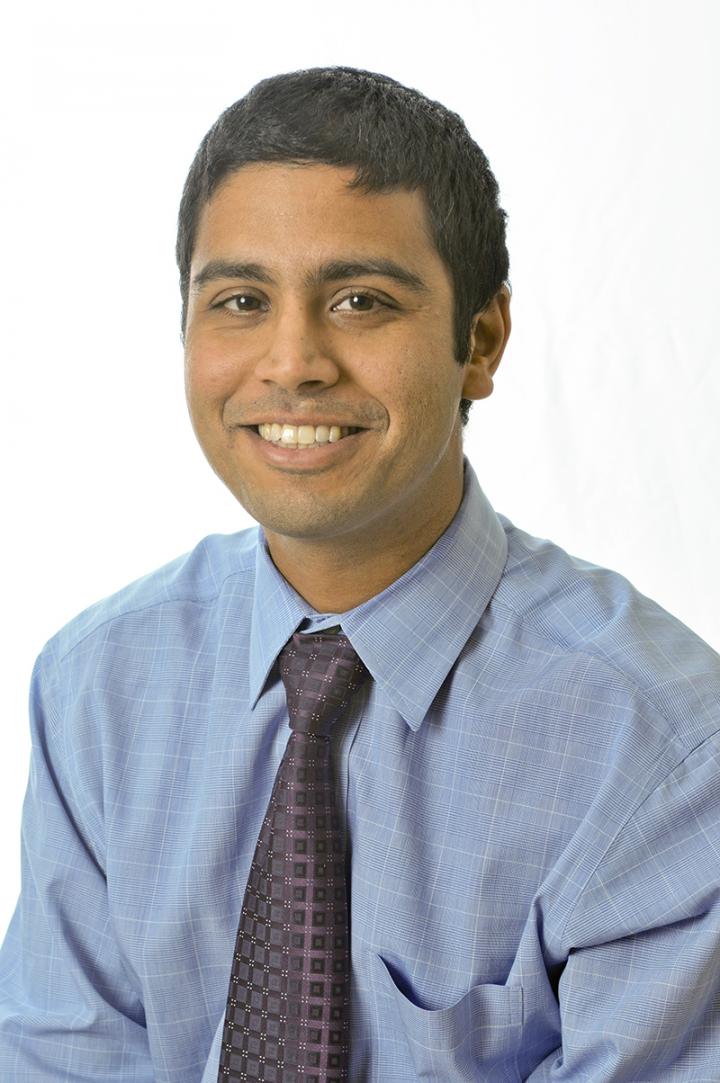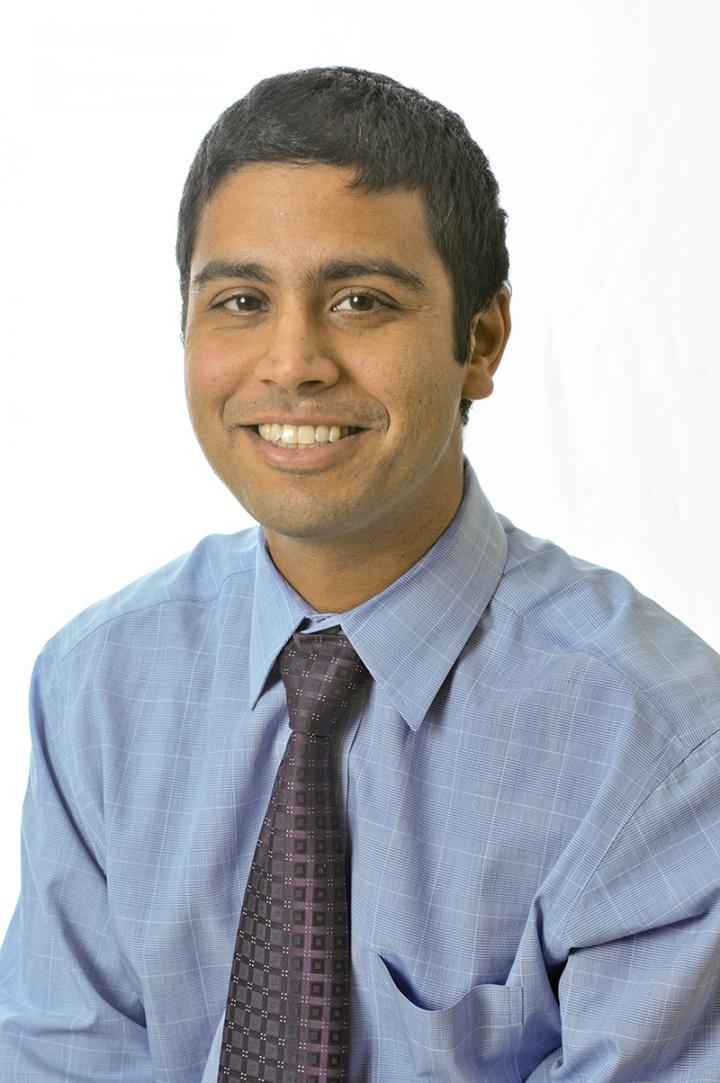
Credit: UIC
Patients diagnosed at high-volume centers are up to 40 percent more likely to receive treatment for glioblastoma, according to a study from researchers at the University of Illinois at Chicago.
The study, which is one of the largest on glioblastoma treatment and outcomes, also shows that patients treated at high-volume centers live approximately three and one-half months longer than patients treated at low-volume centers.
Dr. Matthew Koshy, corresponding author on the paper, says this difference in outcomes is on par with results seen in phase III clinical trials — the last of which for glioblastoma was two years ago.
"It has been very difficult to find new treatments for glioblastoma, and there has been little progress toward improving outcomes for patients suffering from this type of cancer," said Koshy, radiation oncologist at the University of Illinois Hospital & Health Sciences System. "To see a significant difference in outcomes, based solely on type of facility, offers strong and, more importantly, actionable evidence that physicians and patients can use today as they consider treatment options."
While the researchers say it is not surprising to see better outcomes for patients treated at high-volume centers — where there are more likely to be robust clinical trial and multidisciplinary programs — it is surprising to see that patients treated at low and medium-volume facilities were less likely to even receive treatment.
Standard treatment for glioblastoma, which is a common and highly malignant type of brain cancer, includes surgery followed by radiation and chemotherapy. The researchers hypothesized that physicians at low and medium-volume centers, which make up the vast majority of centers, may hesitate to recommend treatment due to the historically poor prognosis associated with glioblastoma and a lack of resources for dealing with complex cases.
"This study suggests that patients newly diagnosed with glioblastoma benefit from care at a hospital that treats a high number of patients with brain tumors," Koshy said, "and that most physicians should consider referring glioblastoma patients to high-volume or academic medical centers before advising against treatment."
Using data from the National Cancer Data Base (NCDB), a combined registry of the American Cancer Society and the American College of Surgeons' Commission on Cancer (CoC), the study included 68,726 patients diagnosed with glioblastomas between 2006 and 2013. Hospital volume was determined based on the average number of glioblastoma cases per year. Low-volume centers saw less than nine cases; medium-volume centers saw nine to 23 cases per year; and high-volume centers saw more than 23 cases per year.
The findings are published in the Journal of Neuro-Oncology.
###
Co-authors on the paper are Michael Spiotto, Herb Engelhard, Konstantin Slavin, Martin Nicholas and Ralph Weichselbaum of UIC; David Sher of UT Southwestern Medical Center; Zain Husain of Yale University; and Chad Rusthoven of the University of Colorado. Koshy, Spiotto and Weichselbaum have joint appointments with the University of Chicago.
Media Contact
Jackie Carey
[email protected]
312-996-8277
@uicnews
http://www.uic.edu
Original Source
https://today.uic.edu/treatment-nonexistent-for-some-glioblastoma-patients http://dx.doi.org/10.1007/s11060-017-2598-2





